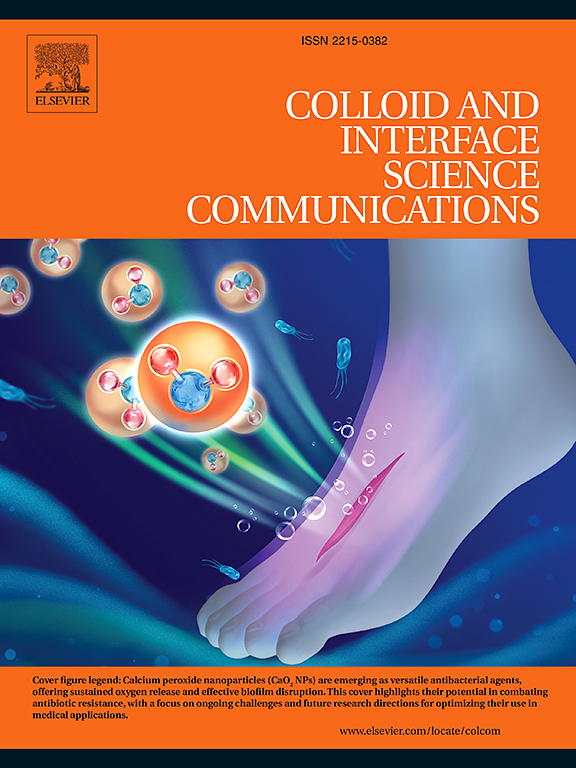Denaturation and graphitization of albumin molecules induced by mechanical shear stress via in-situ point contact
IF 4.7
3区 材料科学
Q2 CHEMISTRY, PHYSICAL
引用次数: 0
Abstract
Many well functioned explants have shown that a gaphitized tribofilm formed on the bearing surfaces providing excellent lubrication effects, greatly improves the longevity and service safety of the joint prosthesis. Tribofilms are generally believed to be generated from protein molecules in the pseudo-synovial fluid. In this study, a modified atomic force microscopy with an alumina microsphere tip was used to articulate against low-carbon wrought CoCrMo alloy pins in protein solution. We successfully studied the process of tribofilm formation in-situ, with the results demonstrating that a critical compressive stress (>136 MPa) was required for tribofilm formation. Increasing compressive stress reduced tribofilm thickness but expanded its area and increased its modulus. In addition, with prolonged friction, the proteins gradually shifted toward graphitization. This in-situ study revealed that tribofilm growth in the articular prostheses is manifested as the expansion of the coverage area, rather than the continuous increase of thickness.

原位点接触机械剪切应力诱导白蛋白分子的变性和石墨化
许多功能良好的外植体研究表明,在关节假体的承载表面形成的石墨化摩擦膜具有良好的润滑效果,大大提高了关节假体的使用寿命和使用安全性。一般认为摩擦膜是由伪滑液中的蛋白质分子产生的。在这项研究中,使用了一种带有氧化铝微球尖端的改进原子力显微镜,在蛋白质溶液中对低碳变形的CoCrMo合金引脚进行了清晰的表达。我们成功地在现场研究了摩擦膜的形成过程,结果表明,摩擦膜的形成需要临界压应力(>136 MPa)。增大压应力可减小摩擦膜厚度,扩大摩擦膜面积,增大摩擦膜模量。此外,随着摩擦时间的延长,蛋白质逐渐转向石墨化。本原位研究表明,关节假体中摩擦膜的生长表现为覆盖面积的扩大,而不是厚度的持续增加。
本文章由计算机程序翻译,如有差异,请以英文原文为准。
求助全文
约1分钟内获得全文
求助全文
来源期刊

Colloid and Interface Science Communications
Materials Science-Materials Chemistry
CiteScore
9.40
自引率
6.70%
发文量
125
审稿时长
43 days
期刊介绍:
Colloid and Interface Science Communications provides a forum for the highest visibility and rapid publication of short initial reports on new fundamental concepts, research findings, and topical applications at the forefront of the increasingly interdisciplinary area of colloid and interface science.
 求助内容:
求助内容: 应助结果提醒方式:
应助结果提醒方式:


